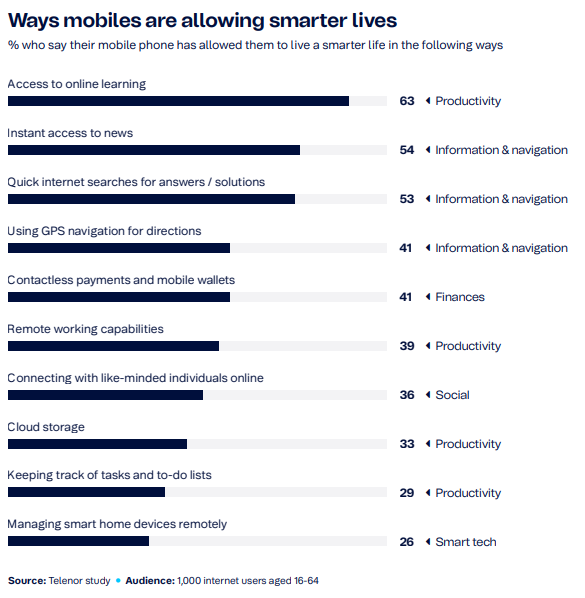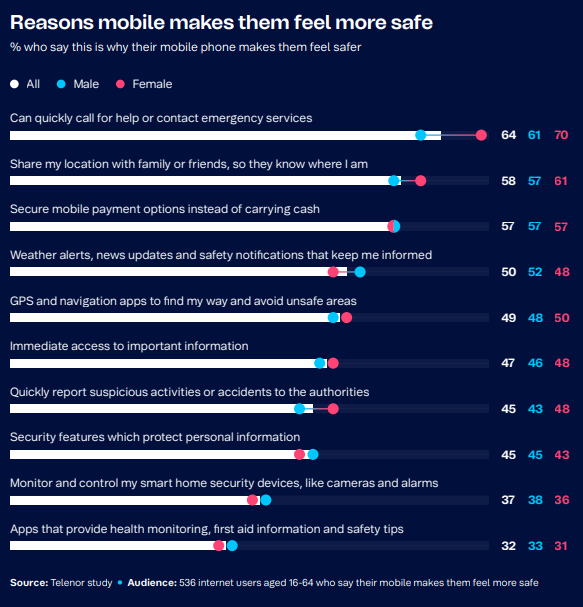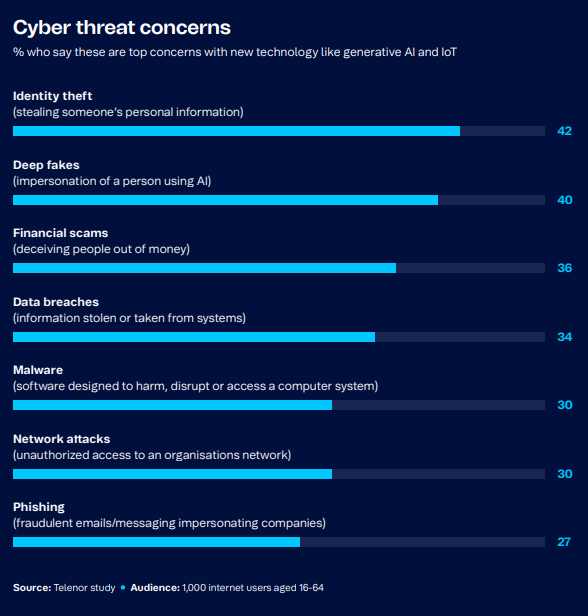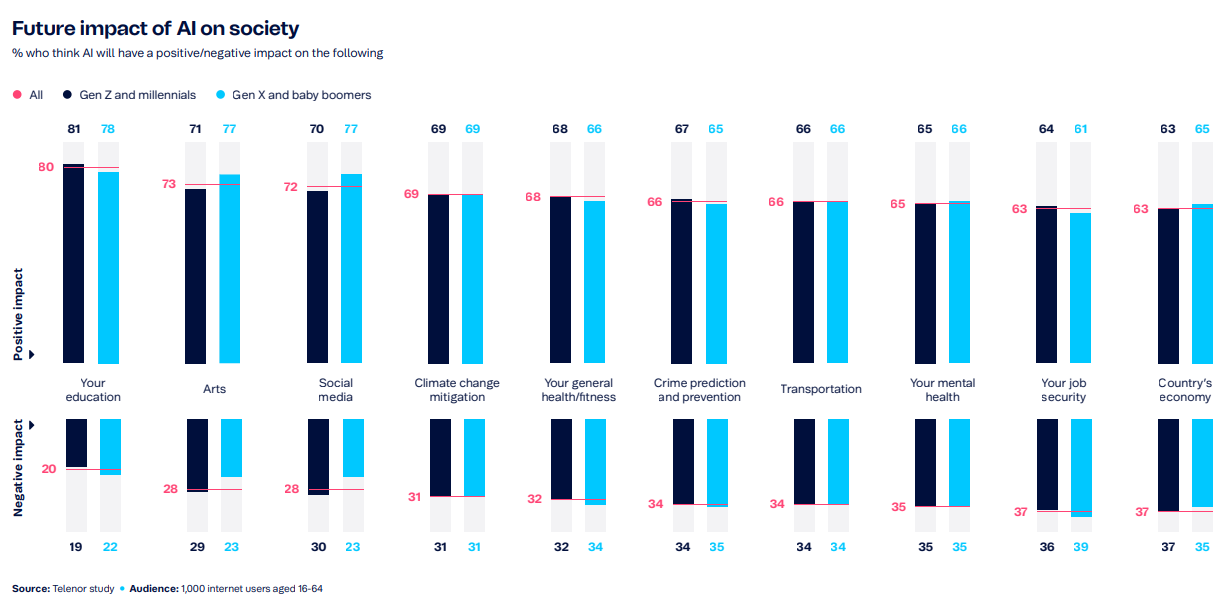Bangladesh
Digital Lives Decoded
As digital developments continue at pace, reshaping the world around us, Bangladesh is undergoing a digital transformation of its own. In this context, I am pleased to present the third edition of Telenor Asia Digital Lives Decoded (Bangladesh), which offers insights into how people in Bangladesh view technological shifts around them and the profound impact of mobile technology on their daily lives.
This edition focuses on how mobile connectivity is enabling smarter and safer lives. With 9 in 10 reporting that they use AI tools on their mobile, the study examines the impact and people’s perception of these new technologies and their potential to revolutionise various sectors in Bangladesh, from education to climate change. The findings highlight that mobile phones are not just communication tools but powerful gateways to smarter lives, helping people gain new skills, improve social connectivity, and increase personal sense of safety.
Yet, as excitement around AI grows, so do cybersecurity concerns, underscoring the need for improved security measures to protect against threats such as identity theft and deepfakes, or network attacks. It is also crucial to pay attention to the people and parts of the ecosystem most at risk, in particular, the online safety of vulnerable groups such as the elderly and younger generations.
This white paper serves as a crucial resource for understanding the benefits and challenges of digital advancements in Bangladesh. It underscores the importance of fostering a safe and smart online environment, ensuring that the digital world is inclusive and beneficial for all.
We hope it will encourage stakeholders, policymakers, and people in Bangladesh to embrace digital opportunities, while addressing the accompanying risks. Together, we can build a more secure and connected future for Bangladesh!

Jon Omund Revhaug
Head of Telenor Asia
Report snapshot
Mobile phones are a gateway to enhanced skills and safety in Bangladesh
Increased access to online learning, mobile wallets and navigation capabilities are some of the ways the mobile phone has enabled people in Bangladesh to live a smarter life.
The mobile phone has also improved the sense of safety for a significantly greater proportion of people in Bangladesh (52%) than in other markets surveyed: Thailand (37%), Malaysia (31%) or Singapore (28%).


Emerging threats of identity theft and deepfakes makes online safety an imperative
As the digital landscape evolves in Bangladesh, concerns around new threats of identity thefts and deepfakes have emerged. 7 in 10 mobile internet users – have also expressed worry about the security of their online accounts.
However, respondents in Bangladesh currently lag behind other markets in adopting online safety practices. This highlights a critical need for continued training and education to enhance digital literacy and foster safe online behaviours.

AI is emerging as a new trend in education and the workplace
Respondents say they are optimistic about AI and what it can do for smarter, safer, and more connected lives. In particular, 8 in 10 believe AI will have a positive impact on education. This points to the potential of AI in making education more accessible and adaptable to different learning needs.
The growing availability and accessibility of free AI tools in Bangladesh is becoming popular in the workforce. However, the findings also point to a gender gap in the adoption of these tools, with only a third of women (37%) using AI at work, compared to almost half of male mobile internet users (47%).


